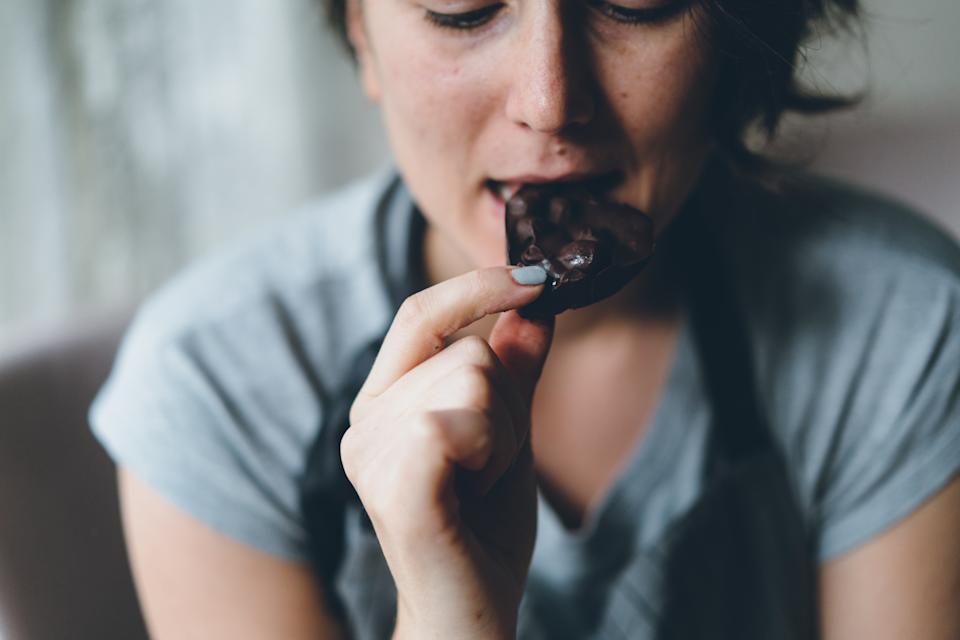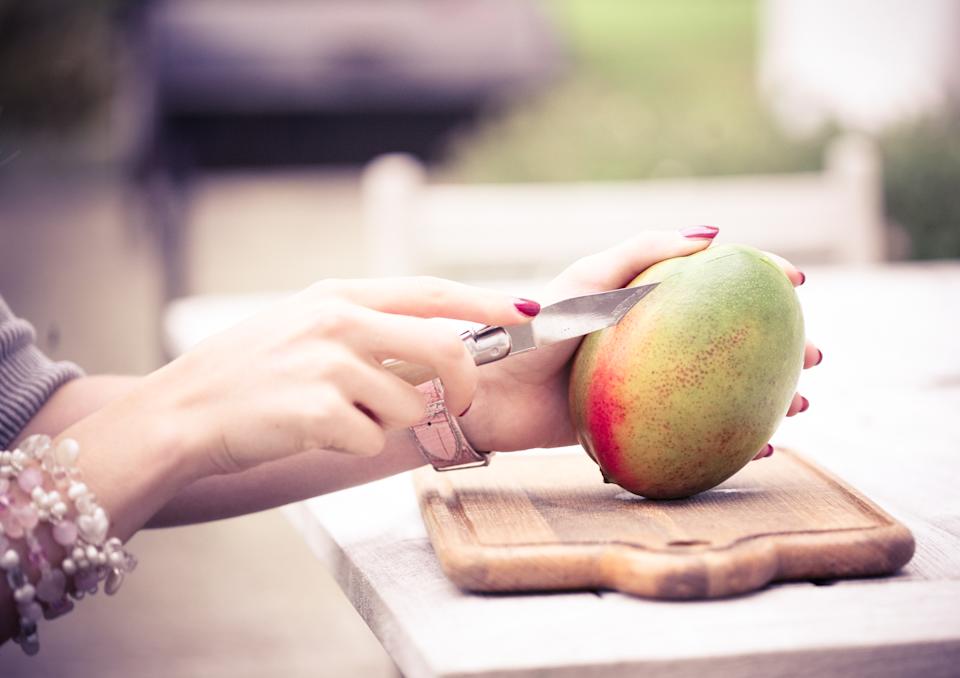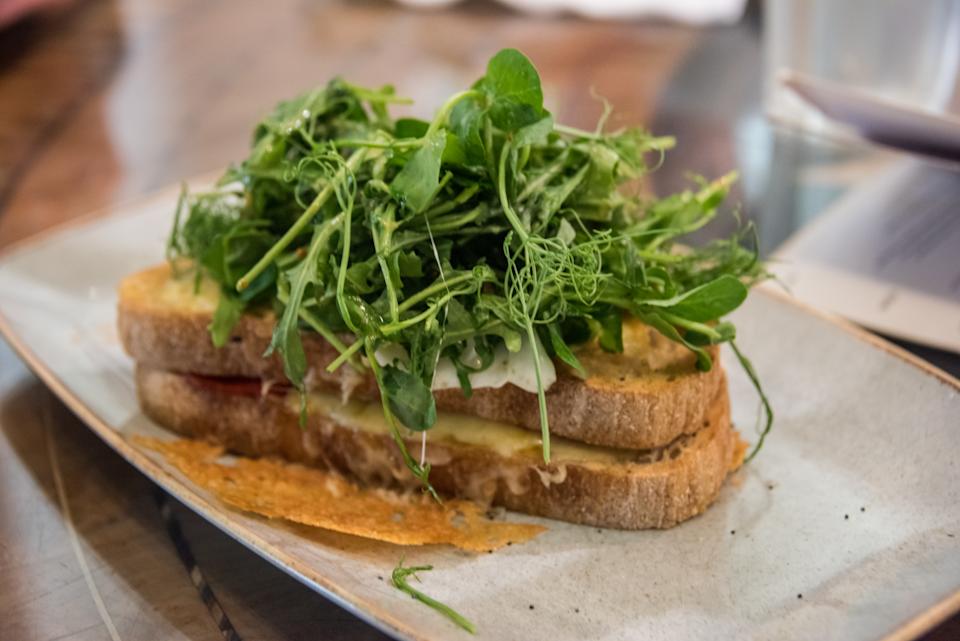From a takeaway coffee on the way to work to a mid-morning slice of toast, many of us have daily habits when it comes to food and drink. But there are some options that could impact our health when consumed every day.
Your shop-bought sandwich or packet of crisps may be tasty and convenient, but regularly eating ultra-processed options can leave us feeling sluggish and affect our mood, blood sugar, and more.
According to Dr Lindsey Fellows, senior lecturer in nutrition and lifestyle medicine at the University of Worcester, “It’s not about never having these foods – it’s just about not having them every day.”
Here’s what we should be limiting and how to make smarter choices.
1. Crisps
Crisps are a go-to snack for many, but they’re not the best daily habit. “They’re high in saturated fats and salt, which we know can raise cholesterol and blood pressure,” Dr Fellows tells Yahoo UK. “They’re processed food – foods that have been ‘messed with’ so things added in or taken out. It’s a departure from actual food.”
Some crisps may also contain trans fats, which she calls “the really nasty fats.” These can raise bad cholesterol (LDL) and lower good cholesterol (HDL), increasing your risk of heart disease and stroke.
What to have instead: If you’re craving salt and crunch, try air-popped popcorn, unsalted rice cakes or roasted chickpeas.
2. Milk or white chocolate
We all love a sweet pick-me-up, but eating milk or white chocolate every day isn’t ideal. “They’re very high in sugar (white chocolate especially), obviously not good for teeth, and they don’t leave you feeling full,” Dr Fellows explains.
What to have instead: Dark chocolate is a better option, Dr Fellows says. “The higher the percentage, the better – 70% and up is great,” she explains. “It’s rich in antioxidants, polyphenols and even magnesium.”
Nutty chocolate can be a slightly healthier option, she adds: “If you’re eating chocolate with nuts, they help balance out the sugar spike.”

Dark chocolate contains antioxidants and is a better sweet treat than milk or white chocolate. (Getty Images)
3. Ready meals
“Ready meals can be OK, occasionally,” Dr Fellows says, “but many contain high levels of salt, preservatives and additives – plus, they’re often low in fibre and micronutrients.” She adds that pasta-based ready meals with lots of creamy sauce are often full of calories and hidden sugar.
Ready meals can count as one of your five a day, though, provided you choose one with a high veggie count.
What to have instead: Look for ready meals with short ingredient lists and plenty of whole foods – options like microwaveable lentil or bean-based soups, veg-packed curries, or meals with lean proteins and grains, such as chicken with brown rice and vegetables.
4. Diet drinks
They may be sugar-free, but diet drinks aren’t the win they appear to be. “They contain artificial sweeteners, which still make your brain think it’s getting sugar,” says Dr Fellows. “That can keep cravings high.”
She adds, “Sweeteners are artificial – your body doesn’t always know what to do with them, and they can impact your gut microbiome.”
What to have instead: Try sparkling water with a slice of lemon or lime as a refreshing alternative. If you’re used to very sweet drinks, Dr Fellows suggests gradually reducing your intake so your taste buds adjust.
5. Biscuits
A daily dunk of your go-to in your tea might seem harmless, but biscuits are often made with refined flour, added sugar and unhealthy fats. Dr Fellows explains that biscuits “aren’t much more than empty calories,” and some pre-baked goods can contain trans fats.
What to have instead: Try pairing your cuppa with oatcakes and a dab of nut butter or a banana. You’ll get slow-release energy and still feel satisfied. Alternatively, make your own batch of biscuits once a week, as then you’ll be in control of the ingredients and can opt for sugar-free or low-sugar recipes.

Tropical fruits like mango can cause a blood sugar spike. (Getty Images)
6. Certain fruits and veg
Most of us aren’t eating enough fruit and veg, but there are still a few that might not be ideal every single day. “Dried fruit can be quite sugary,” explains Dr Fellows. She also warns against eating large amounts of spinach and beetroot if you’re prone to kidney stones.
While these veggies are nutrient and antioxidant-rich, and a great addition to most people’s diets (they’re not UPFs, to be clear), she warns that they’re also “high in oxalates, which can impact kidney function if eaten in excess.”
She also flags tropical fruits like mango and pineapple as “they can cause a blood sugar spike, especially as we get older and our insulin response changes, so that’s good to be aware of.” She advises checking labels on canned versions for added sugar or preservatives too.
What to have instead: Pair fruit with protein or fat, like yoghurt, peanut butter or nuts, to slow sugar absorption.
7. White bread
“White bread is highly refined,” says Dr Fellows. “It lacks the fibre that wholegrain varieties have, so it doesn’t keep you full and spikes blood sugar.” Eating it daily could leave you hungrier over time.
But she makes a distinction: “If it’s a good quality sourdough or something fresh from a bakery, that’s a different story.” The concern is more about mass-produced supermarket bread: “It’s usually been sitting on the shelf a few days. This means it’s highly processed, often full of preservatives, and lacks nutritional value.”
What to have instead: Look for 50/50 or wholemeal breads. They release energy more slowly and are better for digestion.

Choose wholemeal bread, sourdough or 50/50 options instead of sliced white bread. (Getty Images).
8. Takeaway coffees
A takeaway coffee is a daily pick-me-up for many, but if you’re going to have more than one cup, you’re better off brewing it yourself.
Dr Fellows says black coffee has benefits – like antioxidants and focus-boosting effects – but those perks get lost when you super-size it or add extras. “If you’re ordering the largest version with syrups and milk, you could be consuming up to 1,000 calories – just from one drink.”
What to have instead: Stick with simple coffees like black, Americano or a flat white with semi-skimmed milk. If you’re after something sweet, try cinnamon or a vanilla pod for natural flavour without the sugar crash.
So, what should you eat every day?
Dr Fellows’ top picks are:
-
Plenty of vegetables: They’re full of vitamins, minerals, antioxidants and fibre and can help reduce your risk of heart disease and some cancers.
-
Wholegrains: Think brown rice, wholemeal bread, oats, quinoa or wholewheat pasta. These are fibre-rich and help keep your energy levels steady throughout the day.
-
Plant proteins like beans, pulses and nuts: As well as protein, they offer fibre, which aids digestion.
-
Healthy fats: Found in foods like avocados, olive oil, nuts, seeds and oily fish. These support brain function, help absorb vitamins and keep you feeling fuller for longer.
-
Oily fish: “Omega-3s are brilliant for heart and brain health,” says Dr Fellows.
She adds that, “No single food has it all. Eat a rainbow of colours and focus on variety, that’s where the real benefit lies.”
Read more about food:
